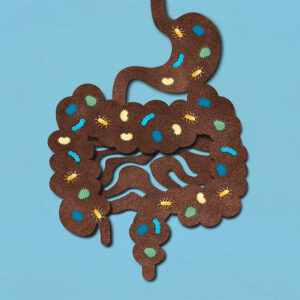
This "Medicine" Could Kill You
There’s one drug (some call it “medicine”) that is so potentially harmful even the FDA has taken notice.
Each year, overdoses are estimated to kill over 458 people, send over 56,000 to the emergency room, and lead to 2,600 hospitalizations.[1]
(To answer your question, Bobby, that’s about two people killed between Wednesday’s issue and today.)
And chances are good it’s in your medicine cabinet right now.
What is it?
None other, that good ol’ Tylenol (acetaminophen).
Now, to be fair, a good number of the folks harmed by acetaminophen have intentionally overdosed on the product by trying to commit suicide.
But think about it: A drug that’s a first choice for someone who want to kill themselves is readily available over the counter.
Ok, to be even fairer, it’s true most things available over the counter could kill you if you took too much. Heck, even water can kill you.
The problem is that acetaminophen can become extremely harmful or outright deadly with just a few extra doses. Of the estimated 458 acetaminophen-related deaths each year, about 150 are caused by inadvertently taking too much of the drug.
According to the FDA, as few as just two additional extra-strength pills can cause liver damage. And if taken all at once, less than four times the maximum daily dose can be deadly.
And for some people, even taking the recommended dose can lead to severe injury and death.
The problem compounds because acetaminophen is found in many different products, and people don’t always know it’s in there. Aside from straight pain relievers, cough syrups and even sleep aids can contain the drug. That’s why it’s so important to read labels.
Combining acetaminophen with alcohol can also lead to severe liver injury. That’s why you should never treat a hangover with Tylenol.
Oh, and acetaminophen can also cause fatal skin reactions, literally causing the skin to melt off your face.
After reading that I came across this ad, and it doesn’t seem so cute anymore:

Even FDA acknowledges the issues with acetaminophen, though they are far from banning it.
In 2009, 32 years after an expert panel advised FDA to add a warning advising of the potential for liver toxicity, they finally did so.
In 2011, FDA declared that prescription acetaminophen products had to decrease the per-capsule dose to no more than 325mg. But this limit doesn’t apply to over-the-counter (OTC) products.
Way to go, FDA!
And as Ken wrote in to tell me: “Most doctors do not read the FDA reports on the drugs they prescribe. A doctor told me it’s not important. WOW. There can be warnings about mixing drugs in those reports.”
You got that right, Ken.
Not only should you be careful how much of a drug you take, but you should also make sure it doesn’t interact with any other medications or herbal supplements you’re taking.
Growing up, Tylenol was our pain reliever of choice. It worked, and my mom, a nurse, made sure we knew not to take more than what the bottle said. We thought it was safe.
With what I know now about the risk for liver damage or death, I won’t touch the stuff. I like to save my liver for more important things, like its necessary role in detoxing the chemicals and pesticides I can’t avoid (and also, admittedly, processing my Friday night cocktails).
So the question is if you have a headache/backache/arthritis, what should you take?
Non-steroidal anti-inflammatory drugs (NSAIDs), such as ibuprofen (Advil/Motrin), aspirin, and naproxen sodium (Aleve), are not without their own risks.
They can cause stomach ulcers, bleeding, or holes in the intestines, which can lead to death. All NSAIDs (except for aspirin) have also been linked to a higher risk of heart attack or stroke.
But in regard to causing death, NSAIDs seem to be a touch safer than acetaminophen. From 2001-2010, deaths from acetaminophen were about twice the amount of those from all other OTC pain relievers combined.
So while not without risks, I believe NSAIDs to be relatively safer than acetaminophen, especially if you only take them occasionally. But if you have any stomach or intestinal issues like ulcers, or have a high risk of cardiovascular events, they probably are not a good choice.
For chronic pain, you need to get to the root of the problem.
Frequent headaches? Get your eyesight checked.
I used to suffer from chronic headaches. When I finally got my eyes examined, I found out I had a muscular imbalance causing my eyes to strain. After getting them fixed through surgery, no more headaches!
Headaches can also be caused by deficiencies in certain nutrients, like magnesium, as well as by simple dehydration.
If you have pain due to arthritis or degenerative disc disease, you’ll probably need more support than just extra vitamins and minerals (though there have been cases where certain minerals, like boron, have eased or eliminated joint pain for some people).
Though research has been mixed over the years, a new trial from the University of Maryland School of Medicine just came out showing six months of glucosamine and chondroitin supplementation reduced osteoarthritis pain just as effectively as the prescription drug Celebrex.
In another study, the natural combo was actually able to reduce cartilage loss in the knee.
However, glucosamine and chondroitin need to be taken for at least six months to notice an effect, and are best taken long-term. And the combo just doesn’t seem to work for at least half the people who try it.
Food intolerances can also contribute to joint pain, which I wrote about in this article. I also wrote about some other herbs that can help provide pain relief.
Finding a good doctor that practices functional medicine can make a huge difference. Doctors that practice functional medicine are more apt to help you discover the underlying cause of your pain and the best natural treatments that work for you, rather than writing you a prescription just to mask the symptoms.
But if you’re desperate for relief and really must use a drug pain reliever, I urge you to please use caution. Don’t exceed the recommended dose. Use the lowest possible dose you can. Don’t combine it with alcohol. Check how it might interact with other medications you are taking. And don’t take it unless you really must.
Until next time,
Jasmine LeMaster
[1] Lee WM. Acetaminophen and the U.S. Acute Liver Failure Study Group: lowering the risks of hepatic failure. Hepatology. 2004 Jul;40(1):6-9.
View More Free Articles
Mailbag: When to Worry About Memory Lapses
“I’ve been experiencing some memory lapses recently, and I’m worried it might be early signs of Alzheimer’s disease. My mother also had it. What symptoms should I look out for?” – Ann Hi Ann, It’s important to recognize that some degree of memory loss is a normal part of life. Our brains constantly process and...
The Unforeseen Link Between Your Gut and Your Waistline
As the weather warms up and summer approaches, many of us start thinking about shedding those extra pounds… We dust off our gym memberships, stock up on salad greens, and vow to finally fit into those shorts from last year. But what if I told you that the key to achieving a healthy weight might...
Defy Aging with the Sunshine Vitamin
If there’s one thing you absolutely must do for your health, it’s to maintain healthy vitamin D levels. I can’t stress this enough. And if you think vitamin D is only good for beefing up your bones, think again. Because while vitamin D is crucial for maintaining healthy bones, recent research has revealed that this...
Detox Your Drinking Water with a Microplastics Purge
We’re surrounded by plastics. They’re everywhere, from the obvious plastic shampoo bottle to the not-so-obvious clothing on our backs. From the moment we get up in the morning until we slide beneath the sheets at night, we are in contact with them. Heck, some bedsheets contain plastic fibers, so you may ALSO be exposed while...
The TRUTH About Word Finding Troubles
Picture this. You’re having a lively conversation with a friend, and suddenly, find yourself grasping for a word that’s just out of reach. You KNOW it’s in there somewhere, hiding in the recesses of your mind. But no matter how hard you try, you can’t seem to pin it down. When you have trouble word...
FDA Finally Admits “BANNED” Soda Ingredient is Unsafe
I’m not a soda fan for MANY reasons. I wrote an entire book on the dangers of sugar, for example. And research links soda drinking to fatty liver disease, heart disease, high blood pressure, diabetes, obesity, and Alzheimer’s. And the diet stuff is no better. Fake-sugar-filled diet sodas cause “metabolic confusion,” and artificial sweeteners are...
Discover WHY We Accidentally Overeat (and How to Stop)
Picture this… You finish eating a nice meal feeling just fine. But then, 20 minutes later, you’re groaning and clutching your belly because you feel uncomfortably stuffed. If this sounds familiar, you’re in good company. Most of us have had this happen. Science reveals why accidental overeating occurs… and what we can do to avoid...
Find Exercise Exhausting and Painful? Try THIS Natural Fix
If you’ve heard it once, you’ve heard it a thousand times: “You need to exercise.” And sure, you know how vital it is to healthy aging. But let’s be honest, sometimes it feels nearly impossible to get moving—especially when you know you’ll be sore for DAYS after. However, hold on to your seat because I’ve...
Mailbag: Unsteady on Your Feet? Now What?
“I’ve been having trouble with my balance lately and have fallen a couple of times. Could this be related to osteoporosis or another underlying cause?” – John Hi John, It’s always concerning when someone experiences balance issues or falls. While osteoporosis can contribute to an increased risk of falling, several other underlying causes should also...
Is There Really a Hidden Benefit to BROCCOLI?
Just when we thought broccoli’s resume couldn’t get any more impressive, new research proves us wrong. The phytonutrients in this tasty veggie can lower inflammation… balance blood sugar… and even boost your memory. And you likely already know of broccoli’s legendary prowess in preventing cancer. Now, a new study reveals that sulforaphane, the potent compound...









